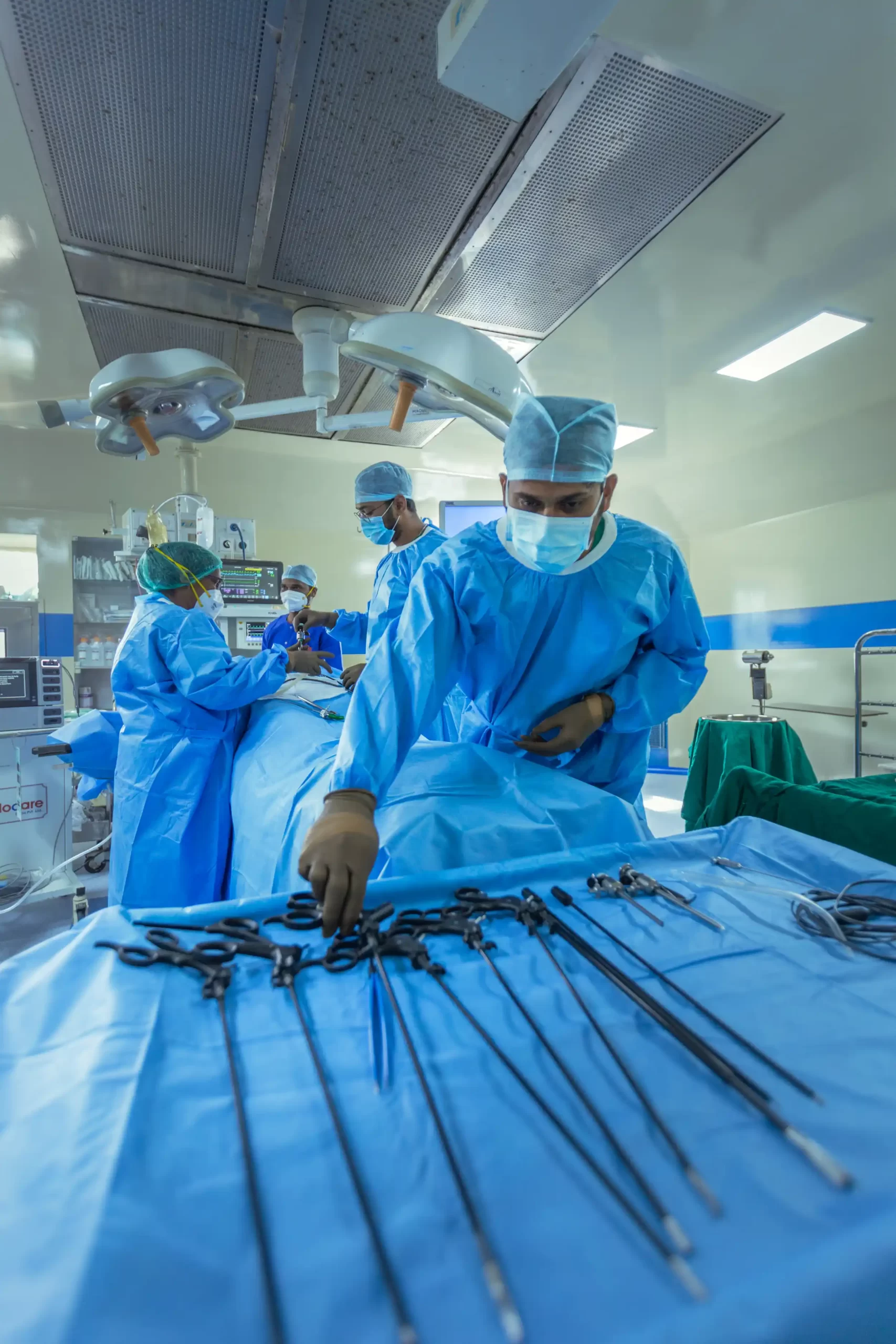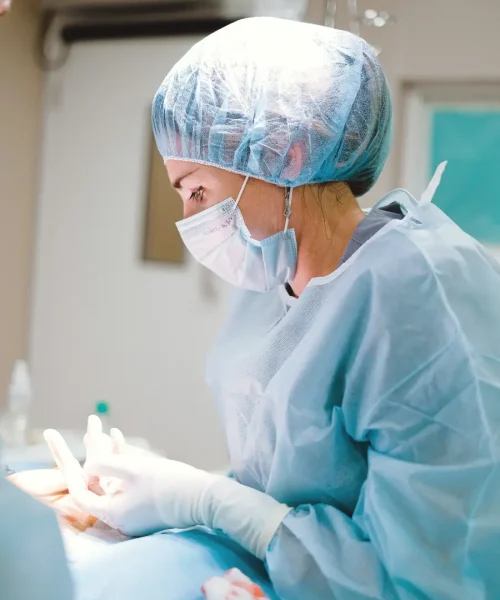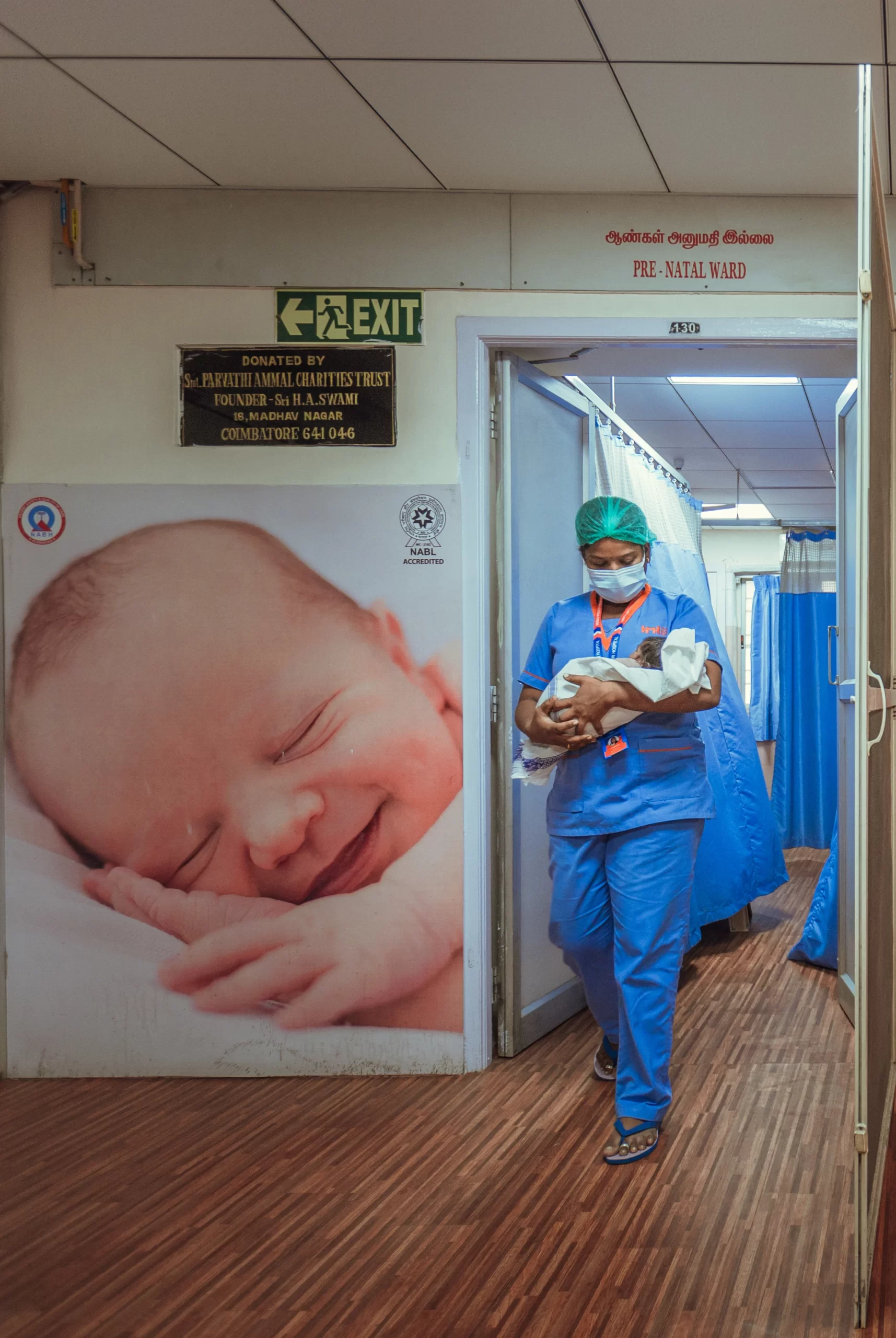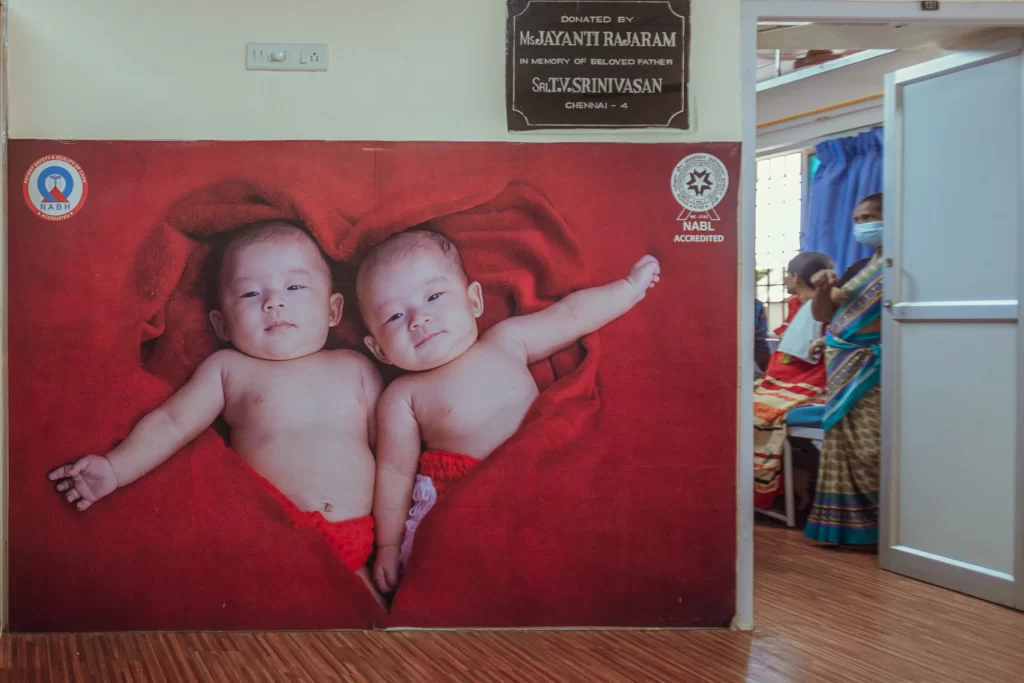State-of-the-Art
Facilities
24/7 obstetrician support for pregnant women
Fully equipped
neonatal wing
Paediatrician on call round-the-clock for newborns
Exclusive operation theatre for procedures related to reproductive system
Hi-tech labour ward with well-qualified nurses
Unparalleled
expertise
Technologically advanced Neonatal Intensive Care Unit (NICU) with trained nurses for continuous monitoring of babies.

Our Holistic
Services
This is a complex procedure to treat coronary artery disease, wherein the major blood vessels supplying oxygen-rich blood to the heart get blocked by deposits containing fat and other materials (plaque).
In a CABG procedure, the blocked part of the coronary artery is replaced with a section of a healthy vein or artery taken from another part of the body and it is called a graft.
The surgeon attaches one end of the graft to an area of the heart above the blockage in the artery, while the other end is attached to an area of the coronary artery below the blockage.
So, blood flow to the heart is diverted and thus restored.
At HMH, cardiac surgeons are well-versed in performing the ‘off-pump’ CABG. Also called the ‘beating heart’ surgery, in this highly advanced procedure the surgeon operates on the heart as it is beating, without stopping and connecting it to a heart lung machine as is conventionally done in many cardiac operations.
This is particularly helpful in high-risk patients,
Valves are structures that allow blood to flow smoothly through the four chambers of the heart. The heart consists of four valves — tricuspid, aortic, pulmonary and mitral valve.
When any of these valves get damaged (become stiff or start leaking blood), they can cause a host of complications.
During valve repair/replacement procedure, the damaged valve may be supported by inserting a ring or the surgeon may totally replace the whole valve with an artificial one or a donor valve.
The aorta is the main artery in the human body that carries oxygenated blood from the heart to the rest of the body.
When a bulge forms in any part of the aorta it is called an aortic aneurysm.
This poses a grave risk, because if the bulge ruptures due to increased pressure of blood flowing within, it can cause internal bleeding and other problems.
An aneurysm repair may be done through open heart method by making an incision in the chest and replacing the damaged part with a graft. In recent times, the more advanced method of endovascular repair is used, wherein the surgeon inserts a catheter (thin tube-like device) upwards from the thigh area into the aneurysm, while using imaging to watch the process on a computer monitor.
Using the catheter, a stent graft is inserted to strengthen the aorta and prevent rupture.
A ventricular assist device (VAD) is a mechanical device that helps blood to be pumped from the ventricles (lower chambers of the heart to the other parts of the body.
In a patient with severe heart failure, the cardiothoracic surgeon may decide to implant a VAD in the chest area to help normal blood flow. This is a major procedure performed through the open heart method.
In this surgery, a pacemaker (a small device that delivers electrical pulses) is placed in the chest area of a patient who may have irregular heart rhythm problems.
The device helps regulate the heartbeat.
Different types of surgery may be performed on the lungs to treat damage to the organs, any growth or malignancy (cancer).
Some of these include wedge resection, wherein a small portion of the lung tissue is removed to treat any damage or growth.
Another procedure is a lobectomy, in which the surgeon removes one of the lobes of the lungs.
This operation is usually performed to treat lung cancer.
One of the most challenging and important sections of cardiothoracic surgery is congenital surgery, which means surgery to correct birth defects in the heart and lungs.
At HMH, we offer some of the best treatments for children with congenital problems with specialised surgery and compassionate care.
- Atrial Septal Defect (ASD) repair
- Ventricular Septal Defect (VSD) surgery
- Closure of Patent Ductus Arteriosus

About
Cardiothoracic surgery
Cardiac surgery is focussed on the treatment of diseases that affect the heart, the most common being coronary artery disease and heart valve issues.
Thoracic surgery deals with conditions that affect the organs within the thorax including the lungs, oesophagus and diaphragm. Cardiothoracic surgeons are proficient in dealing with a wide variety of conditions that affect the heart and lungs and work in tandem with cardiologists, pulmonologists, vascular surgeons and other staff including cardiac and perfusion technologists to give holistic care to the patients.
Hindu Mission Hospital boasts of highly-skilled cardiothoracic surgeons, who lead a team of proficient technologists, diagnosticians and cardiac care nurses.
Assisted by modern technology such as the latest 3D mapping systems, machines to measure fractional flow reserve, heart-lung machines and intra-aortic balloon pump, the cardiothoracic surgery unit delivers exceptional surgical care to the patients.
The unit also has a cardiothoracic laboratory and a dedicated cardiothoracic modular operation theatre.
Cardiothoracic surgeries may be done in the traditional open heart surgery method, where a large incision is made on the chest wall or through the minimally-invasive technique, where a tiny incision is made and special surgical equipments are used to reach the organs and carry out the delicate procedures.
Diseases
Gynaecological problems treated in the Department
Children reach puberty or become sexually mature too early for their age. When girls experience puberty at age 8 or before and boys become mature by the time they are 9 years, it is called precocious puberty. The doctor will counsel the child and parents and in some cases, recommend treatment such as hormone therapy.
It is a debilitating condition, in which the tissue that lines the inner wall of the uterus (endometrial tissue) starts growing outside the uterus. This can affect the ovaries, fallopian tubes and the pelvis. Our gynaecologists have the expertise of diagnosing this condition and giving timely treatment to control the symptoms, which include heavy menstrual bleeding, lower abdominal pain and irregular periods.
Fibroids are benign growth that occur on the wall of the uterus and are common among women. Most often they do not pose any problems but if a woman has large or multiple fibroids, it can lead to heavy bleeding and painful periods. Fibroids can be removed through minimally invasive surgery.
These are small sacs filled with fluid that appear on the inner or outer wall of the ovaries and can sometimes cause pain and discomfort.
It is the second most common cancer among women in India, after breast cancer and often goes undetected until it is in an advanced stage. This type of cancer affects the cells in the cervix, which is the lower part of the uterus and is caused by the Human Papillomavirus (HPV). Early screening and diagnosis can help women get suitable treatment.


Signs that Indicate you
Should see a Gynaecologist
Menstrual irregularities
Severe pain and heaviness
in the abdomen/pelvis
Sleeplessness and hot flashes
Heavy vaginal bleeding
Pain and burning sensation
in the vagina
Post-menopausal bleeding
Bleeding between periods
Foul-smelling
vaginal discharge
Signs that indicate you
should see a Gynaecologist
Menstrual irregularities
Severe pain and heaviness in the abdomen/pelvis
Sleeplessness and hot flashes
Heavy vaginal bleeding
Pain and burning sensation
in the vagina
Post-menopausal bleeding
Bleeding between periods
Foul-smelling
vaginal discharge
Our Special
Treatments
If you experience any of the above symptoms, consult your gynaecologist to avoid major complications. The gynaecology unit at HMH has best-in-class facilities and the doctors are highly experienced in handling all kinds of problems concerning the reproductive organs. We have the latest in diagnostic techniques including blood tests, advanced ultrasound, Pap smear and laparoscope-assisted tests to detect various disorders.
Our gynaecologists use their clinical experience and advanced technology to detect complex diseases early and start timely treatment by way of medical management or surgical procedures. They have vast experience in performing minimally invasive surgeries for issues concerning the uterus such as fibroids, cysts, uterine polyps, endometrial cancer and cervical cancer.
Some of the procedures done at our unit


